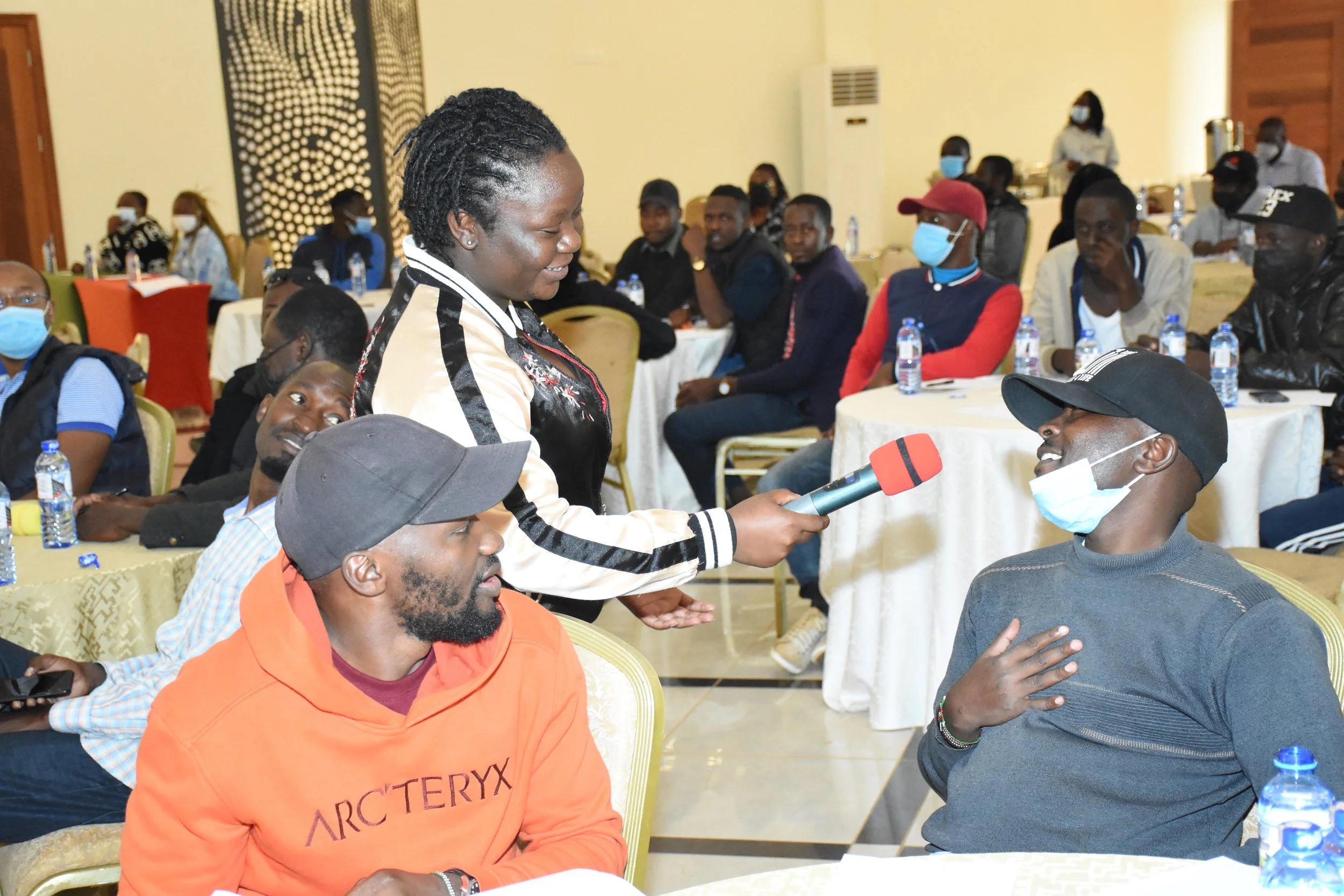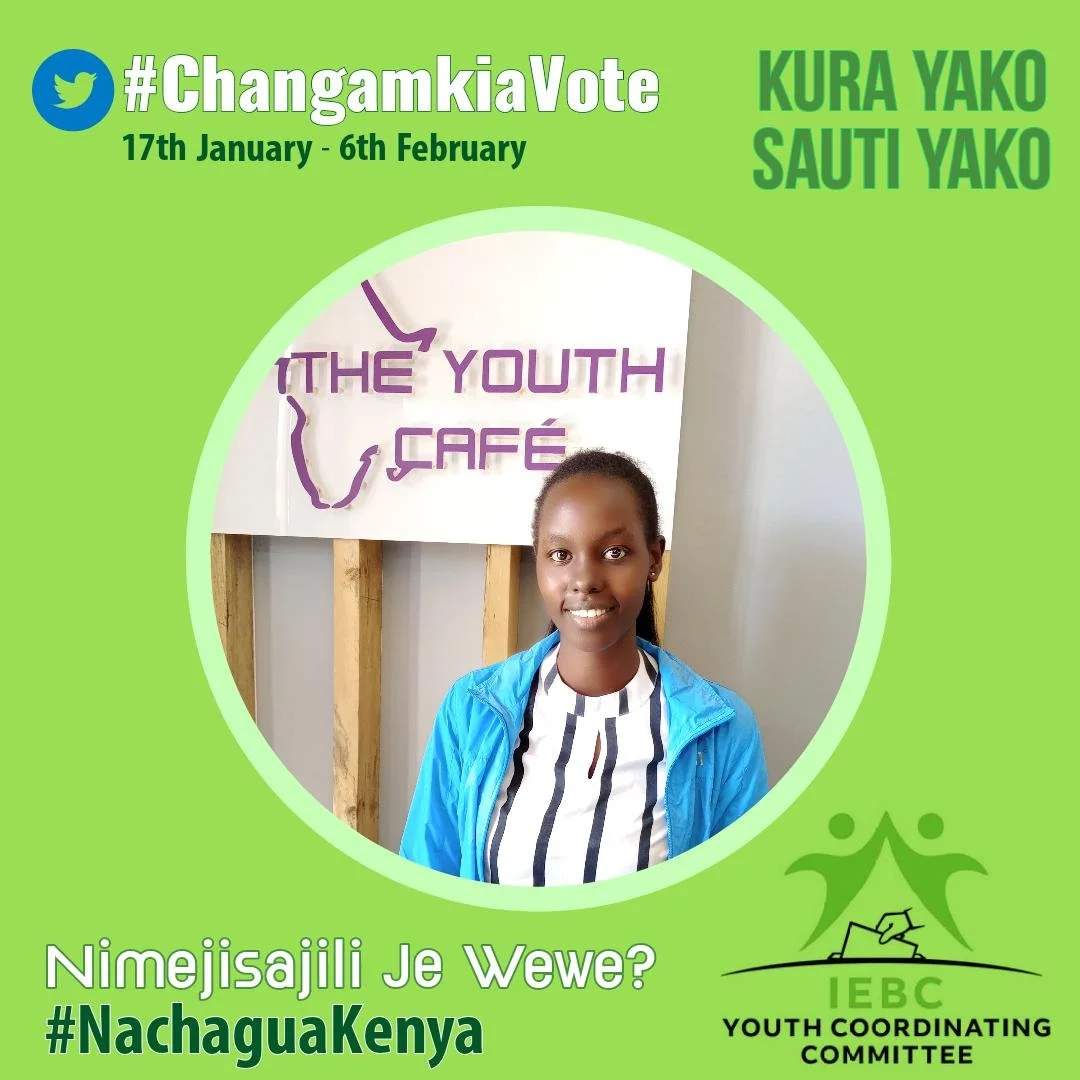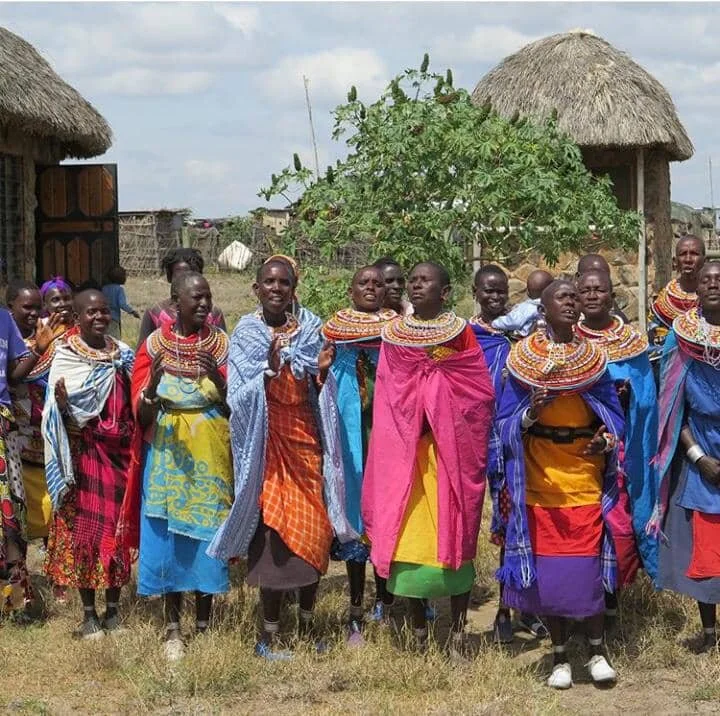The 2022 general elections were the third general election and the fourth presidential election since the promulgation of the Constitution 2010. They were also the 7th periodic general elections since the re-introduction of multi-party democracy in Kenya in 1991. They were transitional elections for Kenya as they marked the end of the incumbent President Uhuru Kenyatta’s two terms in office. Similarly, there were 22 transitions at the county governors’ level due to the expiry of respective 2 term limits. Since the re-introduction of multi-party politics in 1991, Kenyan elections have remained very high-stakes affairs that are characterized by heightened socio-economic, political and ethnic tensions.
How Does The Youth Café Promote Critical Citizenship Among Youth In Kenya?
The Youth Café trains the youth on civic education driven by result-oriented, evidence-based performance, which informs Our Theory of Change: A Pathway for Action, Sustainability, Results, Learning, and Adoption. These changes include institutional changes, service systems, community norms, partnerships, public will, policies, regulations, service practices, business practices, and issue visibility.
How Can We Get More Young People To Register As Voters.
Acknowledging the dire need for increased youth participation in the electoral process, The Youth Café has been working on ways to get more young people to register as voters. Research by the Office of the United Nations High Commissioner for Human Rights (OHCHR), shows that the youth could be largely categorized in three distinct demographics, classified according to age; with the first demographic being young people aged between 18-24 years, then 25-29 years and 30-35 years. Each of these key demographics will require a different approach to get them to register as voters.
Press Release By Women Of Kenya On The Advisory By The Hon. Chief Justice, David Maraga To His Excellency, The President On The Dissolution Of Parliament
The hallmark of a democracy is its adherence and fidelity to the Rule of Law and Separation of powers between the various arms of government. We note that the Two-Thirds Gender Rule is not about giving seats to women but it is about creating an inclusive and sustainable society in furtherance of its commitment to the SDGs, the Agenda 2063, and the Vision 2030. We note that while Kenya has made some great advancements in promoting women’s empowerment and gender equality.





